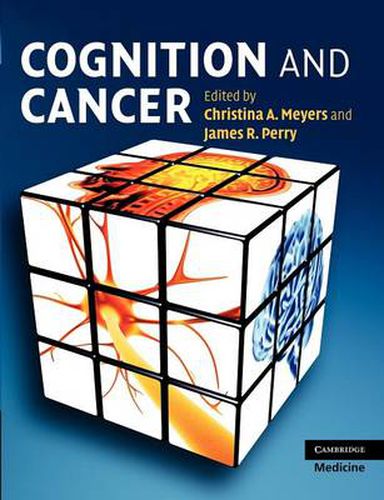Readings Newsletter
Become a Readings Member to make your shopping experience even easier.
Sign in or sign up for free!
You’re not far away from qualifying for FREE standard shipping within Australia
You’ve qualified for FREE standard shipping within Australia
The cart is loading…






Most people afflicted by cancer will experience cognitive impairment, sometimes referred to as ‘chemobrain’ or ‘chemofog’, due to the various direct and indirect effects of their disease and its treatment. In addition, patients with primary or metastatic tumors of the brain experience direct neurologic symptoms due, for example, to the location of their disease, surgical intervention, and the late effects of treatment such as radiotherapy. The aim of this book is to serve as a resource for health care professionals working with cancer patients who experience cognitive changes as a result of their cancer and its treatment. It provides practical information to help improve care by reviewing and describing brain-behavior relationships; research-based evidence on cognitive changes that occur with various cancers and cancer treatments; assessment techniques, including neurocognitive assessment and neuroimaging techniques; and intervention strategies for affected patients. In short, it will explain how to identify, assess and treat these conditions.
$9.00 standard shipping within Australia
FREE standard shipping within Australia for orders over $100.00
Express & International shipping calculated at checkout
Most people afflicted by cancer will experience cognitive impairment, sometimes referred to as ‘chemobrain’ or ‘chemofog’, due to the various direct and indirect effects of their disease and its treatment. In addition, patients with primary or metastatic tumors of the brain experience direct neurologic symptoms due, for example, to the location of their disease, surgical intervention, and the late effects of treatment such as radiotherapy. The aim of this book is to serve as a resource for health care professionals working with cancer patients who experience cognitive changes as a result of their cancer and its treatment. It provides practical information to help improve care by reviewing and describing brain-behavior relationships; research-based evidence on cognitive changes that occur with various cancers and cancer treatments; assessment techniques, including neurocognitive assessment and neuroimaging techniques; and intervention strategies for affected patients. In short, it will explain how to identify, assess and treat these conditions.